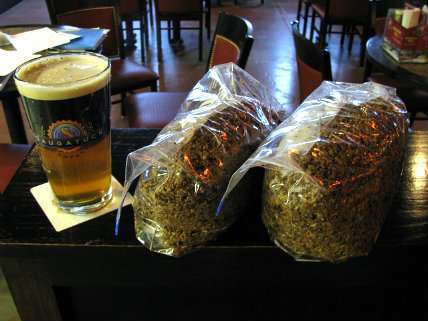FDA Moves to Stop Sharing Between Beer Makers and Farmers

As anyone who's ever brewed their own beer knows, the process leaves a lot of excess … stuff. This goopy aftermath of the brewing process is known as "spent grain," and it would generally go to waste. But many brewers have developed relationships with farmers, who feed the spent grain to cows and other livestock. It's a win-win: Farmers get cost-effective feed, while brewers cut down on environmental waste and also possibly make some extra cash (or at least save cash by not having to dispose of the spent grain).
Obviously, this won't do.
Under new rules proposed by the U.S. Food and Drug Administration, breweries would be required to dry and package spent grain before it could be given or sold to farmers to use as feed. Both brewers and farmers are upset by the proposal, which they say would pose a big financial burden and also just generally makes no sense.
"The transfer of spent grain … has been going on for decades," said Jason Perkins, brew master for Allagash Brewing Company. "It is just this kind of perfect, symbiotic relationship between a brewer and a farmer."
According to CraftBeer.com, spent grain accounts for as much as 85 percent of a brewery's total byproducts. Allagash creates about 10,000 pounds of spent grain each day, according to Perkins, which the brewery donates (free of charge) to a local farmer.
But processing the spent grain would require additional equipment investment and additional labor. If the FDA has its way, brewers are likely to back out of their once-symbiotic relationships with farmers (or at least stop giving away spent grain for free), thereby raising farmers' operational costs. Or they'll see their own costs go up, whether they choose to process the feed for farmers the FDA's way or simply dispose of it (which still costs more than giving it away for free to livestock farmers). Either way, nobody wins under the new proposal. Thanks, FDA!

Show Comments (71)